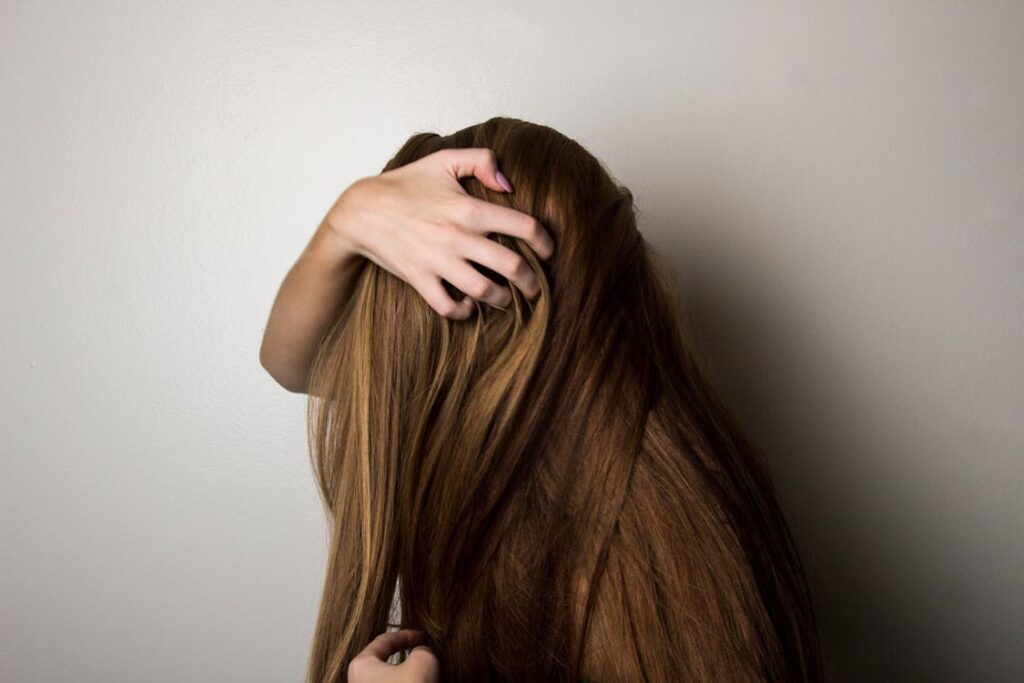
Around 60% of men deal with hair loss by age 50, and around 50% of women experience hair loss in their lifetime. [1] But hair loss isn’t often just a battle people fight for their outward appearance – it’s also one they fight for their inner self-esteem. Seeing the effects of thinning hair or balding in the mirror can result in a flood of negative emotions, from stress to embarrassment and frustration. It’s a situation that can be caused by a genetic predisposition, aging, poor nutrition, a medical condition, or something else. Depending on which, it can be much easier or more difficult to reverse or prevent.
Such a distressing situation often pushes people to experiment with all sorts of traditional and unconventional treatments, the results of which can vary depending on the person and the remedy. One of these more novel treatments is IV therapy for hair loss, which delivers important nutrients directly into the bloodstream to stimulate hair growth.
What Causes Hair Loss?
Before we start thinking about a “cure,” we need to start at the source. That means figuring out what exactly is causing the hair loss in the first place. Hair loss can occur suddenly or over time and can be either permanent or temporary. It all depends on the root of the issue.
- Genetic predisposition – The most common reason for hair loss is androgenetic alopecia, which is, in other words, male or female pattern hair loss that is hereditary. [2] If there is a genetic predisposition to hair loss, the hair will unfortunately not likely grow back.
- Aging – Genetics and aging often intertwine in many cases. While some individuals might not experience genetic hair loss early on in their lives, it might be more apparent with age. Even those without a genetic predisposition will typically experience some sort of hair loss with aging, whether it’s a slowing hair growth rate, smaller or thinner stands, or less concentrated pigment. [3]
- Medical conditions – A variety of medical conditions can cause hair loss, such as autoimmune diseases like alopecia and diabetes and skin conditions like psoriasis.
- Medications – Certain medications can also cause temporary hair loss, including antidepressants, anticoagulants, chemotherapy, and beta blockers. [4]
- Stress and Hormonal changes – Since the hair cycle and the structure of hair follicles are heavily affected by a range of different hormones, it’s no surprise that fluctuations in hormones can cause disruptions, and consequently, hair loss. [5] Especially when people experience stress, there can be a lingering oversaturation of cortisol levels in the body, which causes hormonal imbalances. [6]
- Hairstyles and hair treatments – Many of us might have heard that hairstyles that pull on our hair lead to hair loss. While the premise might sound like a myth, ponytails, dreadlocks, weaves, and cornrows can all potentially damage the hair follicles if worn too often. [7]
- Poor nutrition – A deficiency in essential vitamins and minerals can lead to a range of health issues, one of which is hair loss. As healthy hair is often an indicator of a well-nourished body, reintroducing essential vitamins into a diet can potentially mitigate hair loss.
How Could Vitamin Infusion Therapy Help?
Taking IV supplements through vitamin infusion therapy has promising benefits for hair regrowth and hair nourishment. It can act as both a preventative approach and a restorative approach that can benefit those with temporary or non-permanent hair loss especially.
Essentially, vitamin infusion therapy involves directly infusing a blend of vitamins and minerals into the bloodstream. As they bypass the digestive system, these nutrients can reach the body’s cells quickly and more potently so patients can absorb them more optimally.
If we take a look at the 100,000 hair follicles on the average scalp, 90% of them are in what’s called the anagen phase. This phase simply requires upkeep to produce healthy hair by consuming important vitamins and trace minerals in our diet. [8] Although the distinct role of these vitamins and minerals in hair development comes with an extensive amount of conflicting evidence, they clearly play necessary parts in our overall hair health based on scientific evidence.
For instance, B vitamins and zinc are integral to the health of hair follicles, while vitamin A works to produce sebum – an oil that keeps the scalp healthy and moisturized. Adequate vitamin C aids our bodies in creating collagen, which is consequently used to make keratin, the bodies of protein that makes up the bulk of our hair. [9]
So long as vitamin hair infusion considers the potential risks of over-supplementation, this type of therapy can become a more effective and comprehensive way to approach hair loss. Compared to more traditional superficial treatments like shampoos, oral medication, and laser therapy, infusion hair treatment focuses on an inside-out approach that targets both the symptoms of hair loss and the underlying deficiencies that can contribute to it.
Conclusion
Hair loss, although not life-threatening, is typically seen as an urgent matter. It’s a condition that people strive to change quickly, given its implications on physical appearance and psychological well-being. In a fit of desperation, patients could reach for hair care products and more permanent solutions before considering the benefits of a more holistic approach such as vitamin infusion therapy. Targeting the less obvious or visible deficiencies in the body that could be contributing to hair health may just be the solution that people are looking for.
For clinics and physicians, this therapy can be a well-tolerated and scientifically-guided way to help patients restore their hair’s volume and quality.

